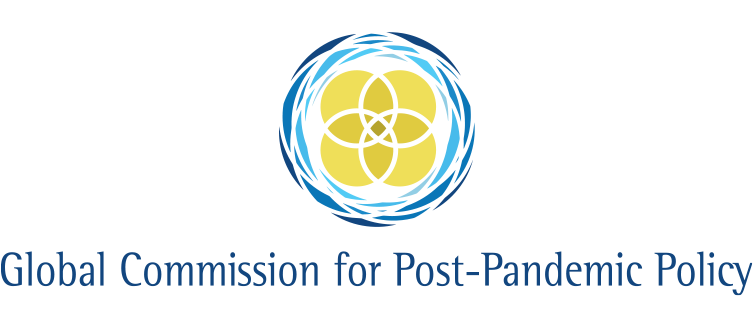ARGUMENT
Donald Trump and the Big Lie
By Bill Emmott, co-director, GCPPP
The invasion and desecration on January 6th of the seat of American democracy by a crowd incited by President Donald Trump was shocking enough. The deeper issue that needs to be addressed is the potency in modern times of the method he used to incite the crowd: what Adolf Hitler called “the Big Lie”.
To invoke Hitler and the Nazis in any modern analysis is to risk instant dismissal as an alarmist. But to understand the challenge posed to constitutional democracy in America and other countries, we need to go beyond that anathema. The infamous quote from Mein Kampf, in which Hitler attributed the Big Lie to Jews so as then to justify appropriating the method for himself, is this:
All this was inspired by the principle—which is quite true within itself—that in the big lie there is always a certain force of credibility; because the broad masses of a nation are always more easily corrupted in the deeper strata of their emotional nature than consciously or voluntarily; and thus in the primitive simplicity of their minds they more readily fall victims to the big lie than the small lie, since they themselves often tell small lies in little matters but would be ashamed to resort to large-scale falsehoods.
It would never come into their heads to fabricate colossal untruths, and they would not believe that others could have the impudence to distort the truth so infamously. Even though the facts which prove this to be so may be brought clearly to their minds, they will still doubt and waver and will continue to think that there may be some other explanation. For the grossly impudent lie always leaves traces behind it, even after it has been nailed down, a fact which is known to all expert liars in this world and to all who conspire together in the art of lying. Adolf Hitler, Mein Kampf, vol 1, ch X
There is nothing new about the use of lies in politics, whether big or small. Early on in the Trump presidency, his aide, Kellyanne Conway, gave us a phrase to encapsulate this strategy: alternative facts. Media organisations competed to compile lists of his manifold equivalents to Hitler’s “small lies”, many of which were dismissable as merely narcissistic. In any case, governments of all kinds have used big, invented incidents to achieve their aims – the Zinoviev Letter of 1924, by Britain; Polish border violations in 1939, by Germany; the Manchurian Incident of 1931, by Japan; the Gulf of Tonkin Incident of 1964, by the United States. The list is extensive.
As history shows, politics and ethics have never been happy bedfellows. In the face of power, scepticism is always the order of the day. That is also the foundational case for two of the central elements of constitutional democracy: freedom of expression and of the media, to allow for competing views and the open flow of information; and checks and balances between national institutions, to discipline the power of any one person or group.
Scepticism is healthy. But today’s challenge goes beyond mere scepticism, beyond justified moral outrage when an untruth is exposed. What we are seeing surrounding the result of the November American presidential election is the attempted use of a Big Lie — Stolen Election! — at the heart of the world’s leading democratic government, a development which if allowed to persist and prosper there or elsewhere would erase the basic difference between democracies and dictatorships: that in democracies scepticism disciplines power, while in dictatorships scepticism is pointless. If politics in democracies also becomes simply the exercise of power, moral and practical distinctions fall away.
Efforts towards the institutionalisation of lying have been fostered by the paradoxical force of the information age, thanks to a vastly expanded media industry, the internet and social media. In combination with successive economic and social crises, along with slower-burning crises of identity, that info-demic has helped convert a healthy scepticism into the more corrosive attitude of cynicism. Such cynicism is the fertile soil in which Big Lies can flourish, such as that the November US election was fraudulent despite the contrary evidence presented publicly by Trump’s own Attorney-General, William Barr, and by certification officials and judges of all political persuasions. During the pandemic, such cynicism has damaged the ability of government to respond in an effective way, while in turn the often untruthful response by Trump himself to the pandemic has served to further erode trust and legitimacy. The pandemic and legitimacy crises are inseparable.
In the past few years there have been many excellent, scholarly but also impassioned studies of this trend, such as “How Democracy Ends” (David Runciman, 2018), “How Democracies Die” (Daniel Ziblatt and Steven Levitsky, 2018), or “Twilight of Democracy” (Anne Applebaum, 2020). Many of these have been occasioned by the election of Donald Trump in 2016 but also by the rise of authoritarian governments in newer democracies such as Poland and Hungary. The books both tell and warn: they tell of the deliberate erosion of checks and balances and of the free media, and the insertion of loyalists amid the propagation of falsehoods to justify it; they warn of how this could develop in the future, based on historical experience.
In future editions of those and newer books, the events in America in January 2021 are sure to be given prominent treatment. That treatment may be centred on the invasion of Congress on January 6th, but will also include the phone call by outgoing President Donald Trump to the Georgia Secretary of State Brad Raffensperger on January 2nd, a recording of which was leaked to the Washington Post.
What the call showed directly was Trump’s willingness to seek to persuade or intimidate an elected state official to overturn the already certified results of the presidential election in that state. What it showed indirectly, however, was how he had created a full narrative based on falsehoods, one he and his circle have sought, as the call showed, to use to bypass and/or undermine the democratic order’s checks and balances represented by the judiciary, by the Department of Justice, by state election officials and by the Electoral College. The invasion of Congress was but the culmination of that effort.
Issues such as Trump’s future role in American politics, whether he will continue to control the Republican Party, whether he will succeed in positioning himself as de facto leader of the opposition to President Joe Biden, and whether he will seek the party’s nomination as its presidential candidate in 2024 remain in the balance. What can be said, however, is, first, that if Trump or Trumpism does succeed in retaining a central role, the false narrative of a stolen election will continue to be deployed; but second and just as critically, that he has shown that in the hands of a more skilful politician such an approach could in fact be made to succeed in some future election. By so transparently exploring the pressure points of the US Constitution, he has provided a guide for future use by figures more competent and perhaps ruthless than he is.
That guide is already in use elsewhere in the world. Once Trump’s November defeat was confirmed, he received little support from other populist political leaders, whether in Europe or in the United States. But this offers little comfort. Populists such as Britain’s Boris Johnson, Hungary’s Viktor Orban or Brazil’s Jair Bolsonaro have not been supporters but instead admirers and emulators of Trump’s political style, which means there is no reason why they should change their own political methods just because he will no longer be in the White House.
The power of Trump’s use of the Big Lie is shown in the continued support that he receives, both from ordinary Americans and from Republicans in Congress and in state legislatures. Opinion polls show three-quarters of registered Republican voters, and more than one-third of all voters, believe November’s election results were not accurate. A snap poll by YouGov on the day of the invasion of Congress showed 45% of the Republican voters sampled actually approved of the storming of the Capitol Building. A small (1,397 respondents) instant poll should not be taken too literally. But it confirms how divided are perceptions in America of the rights and wrongs of what happened, of who to blame for it, and behind it all, of the facts surrounding the November election. That division of perceptions is a success of its own for the Big Lie strategy.
Despite his attempted and alarmingly successful institutionalisation of the Big Lie, Donald Trump will no longer be president on January 20th. His successor, Joe Biden, will now also command a narrow majority in both houses of Congress, thanks to his Democratic Party’s success in winning both Senate run-off elections in Georgia on January 5th, against the apparent odds. Perhaps some Georgia voters reacted negatively to the Trump tactics. And perhaps some legislators, both in Washington, DC, and in state capitols, will react negatively to it as well.
Yet that cannot be relied upon. The potency of the Big Lie needs to be countered and reduced. This cannot be done simply by telling the truth. In the United States, it needs to be done by legislating to make the whole electoral system more plainly secure and transparently fair, so as to reduce the chances of future elections being perceived as fraudulent without good cause. Other reforms need to address the weakness Trump exposed in the checks and balances of American government, such as his ability to dismiss the officials whose job it is to hold federal agencies accountable, the Inspectors-General, and the presidency’s proven immunity to challenge over laws designed to constrain its use for political and propaganda purposes, such as the Hatch Act. There is a bipartisan mood in favour of tightening regulation, on anti-trust and other grounds, of social media platforms including Facebook and Twitter, and this can and should be channelled into new means to make social media firms more responsible for what is published on their platforms.
That is just a preliminary list for consideration. What is vital in the United States and in all constitutional democracies is to examine the sorts of weaknesses of checks and balances that the Trump campaign exposed and to find ways to make the use of Big Lies less effective in the future. The time to do so is now.
GCPPP Newsletter
We now publish a weekly newsletter to inform friends and supporters of the Global Commission’s progress and to provide updates when new content is published. Please sign up here:




 Fateme Alaie, Unsplash
Fateme Alaie, Unsplash



